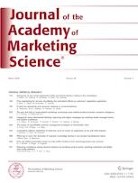|
Authors
Meyer, Jan-Hinrich ; De Ruyter, Ko; Grewal, Dhruv; Cleeren, Kathleen; Keeling, Debbie Isobel; Motyka, Scott ; De Ruyter, Ko; Grewal, Dhruv; Cleeren, Kathleen; Keeling, Debbie Isobel; Motyka, Scott
|
Abstract
Despite growing applications of social and healthcare marketing to enhance public well-being through anti-stigma campaigns, little research investigates how public stigma surrounding health conditions might limit the outcomes of these campaigns. By drawing on the theory of implicit worldviews, this study identifies reasons for public stigma as well as associated message frames to address these reasons. Study 1a provides evidence that implicit worldviews are relevant to campaign results. Study 1b and Study 2 demonstrate that fitting consumers’ implicit worldview with suitable (i.e., biomedical or biopsychosocial) health frames reduces stigma endorsement. Study 3 identifies the perceived severity of a mental illness as a boundary condition; marketing communications have the greatest impact when they refer to an illness with lower perceived severity. Finally, Study 4 expands understanding of the phenomenon by extending the findings to physical health conditions (i.e., obesity). The article concludes by discussing the implications of these findings for policy and future applications.
|

WoS
Scopus
Altmetrics
  
|
|
Journal
Journal of the Academy of Marketing Science, March 2020, v.48, n.2, p.222-245
|
